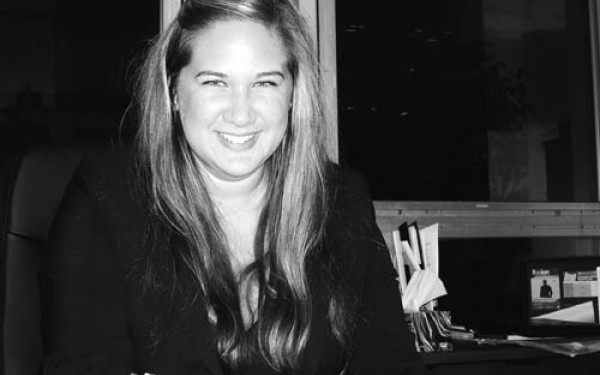CSU Takes an Intersectional Approach
New Equitable Hiring Policy to Set Philosophy in Stone
The Concordia Student Union is looking to increase representation of voices coming from marginalized and oppressed backgrounds.
In the past month, it added an intersectional feminist position to its Positions Book, which CSU Sustainability Coordinator Lana Galbraith proposed at the council meeting on Dec. 14.
According to Galbraith, the position will help guide the CSU in its decision making—particularly its hiring process—and when deciding what sort of organizations the CSU should or should not work with.
Within the hiring process, it would aim to ensure that priority be given to female or non-gender conforming students, especially those who are non-white.
When the position was passed, there was some confusion in the CSU’s council towards it. The wording of the position never specified that it was to be used in relation to hiring within the union. It reads “that priority in that role would be given to someone who has lived experience at the intersection of different systems of oppression.”
Attempts were made by councilors Julia Sutera Sardo, Agunik Mamikonyan and Artem Mikhalitsin to amend the wording of the position, all of which failed.
Sophia Sahrane, Academic and Advocacy Coordinator and member of the policy committee, said an amendment of the wording would “limit” the position and cause it to “lose its potential completely.”
In a recent interview, Sahrane explained that she didn’t want the position to be limited to hiring, but to instead guide the CSU’s “everyday dealings” and ensure “that in every task, every discussion, every decision made within the CSU that we have an intersectional approach.”
In addition, she said at the time that its policy committee was too predominately white and cisgendered to make a fair decision on the matter.
The position, Galbraith said, is important to the CSU’s mandate, as it aims to promote the inclusion and “elevate the voice” of people from marginalized and oppressed backgrounds who may face discrimination when applying for work.
“I think a lot of people are aware that racism exists, but aren’t necessarily aware of the ways in which it shows itself,” said Galbraith.
“I think a lot of people are aware that racism exists, but aren’t necessarily aware of the ways in which it shows itself.” —Lana Galbraith, CSU Sustainability Coordinator
As it stands now, there’s no official policy that will necessarily ensure that this position will be followed. But Galbraith said that soon the CSU’s intersectional feminist philosophy will be made more concrete, through the creation of an equitable hiring policy. This will mostly likely be adopted by the union in the coming months.
She has been working on an equitable hiring policy with the aid of the Centre for Gender Advocacy, and Sophie Sahrane and Loyola Coordinator Marcus Peters.
If approved by council, it would ensure that priority would be given to job applicants to the CSU who are either racialized, female, or non-gender conforming—meaning it would also have an intersectional approach.
Peters said the equitable hiring policy would likely be presented to the CSU’s council to vote on within the next month, and is confident it’ll be approved with little contention.
“Equity hiring policies are starting to become pretty common in workplaces around the world,” said Peters, who highlighted that its decision to push for this policy was not made in reaction to any perceived imbalance within the CSU. Rather, he said, it’s something all workplaces should move towards.
Both Galbraith and Peters have said, however, that this is not an affirmative action policy. “I don’t think that this is a mechanism that would be tokenistic,” said Peters, “because it only comes into place when you have candidates of equal merit.”
The CSU’s hiring committee would only favour a candidate that came from a more marginalized or oppressed background as long as they also had the required job experience and skill set necessary for the job.
Peters hopes the equitable hiring policy will correct various inequalities that exist within many workplaces, even if it may only be on a small scale.

_900_600_90.jpg)


_.final_._jpg__600_375_s_c1.png)

__600_375_90_s_c1.jpg)